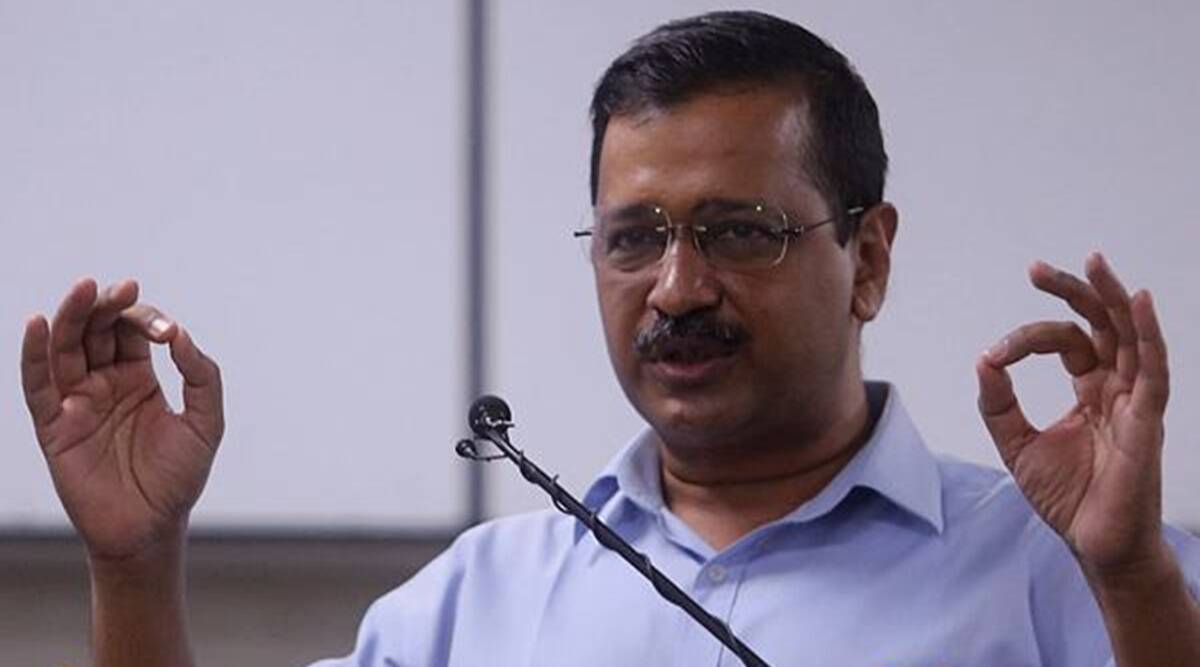 The CM held a meeting regarding the same on Wednesday
The CM held a meeting regarding the same on WednesdayIn a bid to encourage the use of public transport system, the Aam Aadmi Party government has planned to introduce app-based premium inter-city bus services for people travelling to and from neighbouring cities like Gurgaon, Ghaziabad and Noida for work. It is also working on a scheme called the Delhi motor vehicle aggregator licencing (premium bus) scheme.
“We wish to provide this premium bus service so that people leave their private vehicles behind and use public transport. The Delhi government will collaborate with aggregators to operate premium buses in the city. All citizens who make inter-city trips every day should opt for a cleaner, comfortable and equally efficient mode of public transport,” Chief Minister Arvind Kejriwal said, adding that all buses under this scheme will be fully electric.
Holding a meeting Wednesday, the CM directed the transport department to draft a policy on the scheme. Aimed to cut down private cars from the roads, the scheme will likely reduce vehicular pollution. Kejriwal added that all these buses will be BS-VI compliant AC CNG or electric buses in the beginning, but all buses inducted after January 1, 2024, will only be electric. It will be a seating-only bus facility, equipped with app support, CCTVs and panic buttons, and it will be integrated with the One Delhi App for booking rides and making digital payments.
The buses will pick up and drop passengers from the notified bus queue shelters and payment will be made through e-mode, displayed on the app. Stage carriage permits will be issued for individual buses through licences. Each aggregator licensed under the scheme will operate and maintain a fleet of a minimum of 50 premium buses to be operationalised within 90 days.
Subscriber Only Stories
Officials added that once the policy is chalked out, the government will invite public feedback and it will be notified for implementation. The scheme was announced last year but it could not take off due to the pandemic, said an official, adding that now the transport department has sped up the work and the policy will soon be out in the public domain to seek feedback.
“The aggregator will determine routes on which the vehicles will ply. Such routes shall be notified on the mobile or web-based app. The transport department will be informed before starting or modifying/terminating any new route. A prior notice of seven days shall be provided to the transport department and to the general public before any changes are made to the existing routes,” said the officials.
Officials said CNG buses operated by aggregators will not be older than three years. All buses will follow a uniform colour scheme with the GNCTD and aggregator’s logo.
Kejriwal also reviewed the transport department’s route rationalisation project that aims to enhance the bus and last-mile connectivity, and improve the frequency of bus services.
“How to use the existing fleet of buses in Delhi most efficiently? How many more buses do we need? How to integrate all modes of transport? Today, I had a discussion with senior officials of the transport department on the “route rationalisation” proposal. We will soon seek public feedback on the same,” said Kejriwal in a tweet after the meeting.
According to officials, the department has completed the study and prepared a roadmap under which different locations of the city will be provided bus connectivity and passengers can avail of buses within a radius of 500 metres. It has also proposed new routes and the same will be put out to get feedback from the public.
Currently, the coverage of buses in Delhi is 49%, according to the standard of 15 minutes and 500 metres accessible, it will be increased to 90-95%, said officials.
Officials said that presently around 7,200 buses are operating on 625 routes in Delhi. “The number of standard buses will rise from 7,200 to 8,494 in the near future. Mini-midi buses will also be operated on 120 routes, totalling roughly 2,000, providing last-mile connectivity. Similar to that, 480 buses will operate on 44 routes as part of the Metro feeder service.” said officials. Following the study, buses will now run every 5 to 10 minutes on 274 of the 625 regular routes. The buses will continue to run on the remaining 351 routes in the same manner as they do now.
Officials said that under this proposal, bus routes have been divided into several groups. “The trunk network, which consists of 27 super trunk routes and three central business district circulator routes, will have bus services every 5-10 minutes. There will be a primary network with buses running every 10-15 minutes, and feeder network where buses will run every 15 to 20 minutes, will be the secondary network,” said an official.
- The Indian Express website has been rated GREEN for its credibility and trustworthiness by Newsguard, a global service that rates news sources for their journalistic standards.

